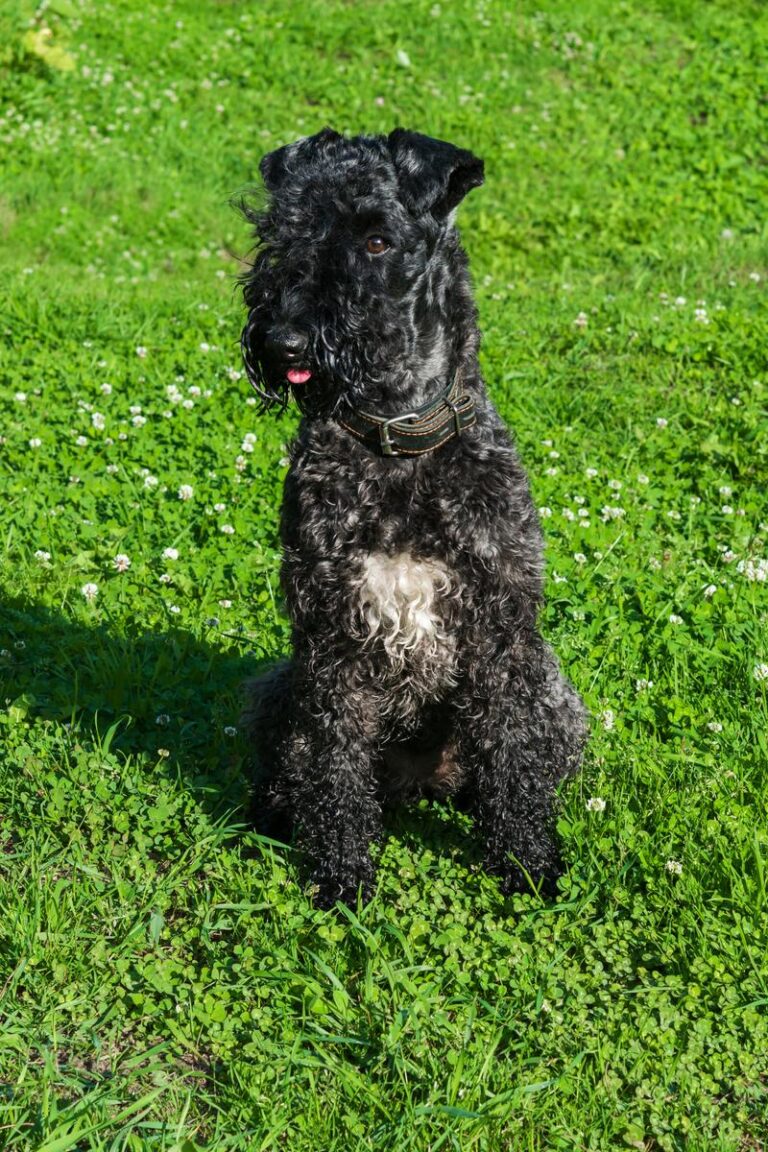Can Dogs Eat Falafel Balls? Happy Tummies and Wagging Tails
Falafels are delicious snacks enjoyed by many of us, but what about our furry friends? can dogs eat falafel balls? The solution is a bit confusing. In case you revel in this delicious dish, you are probably questioning whether or not it’s okay to present it to your canine.
The primary component in falafel, chickpeas, is healthy for domestic dogs, however, a number of the extra elements can be dangerous.
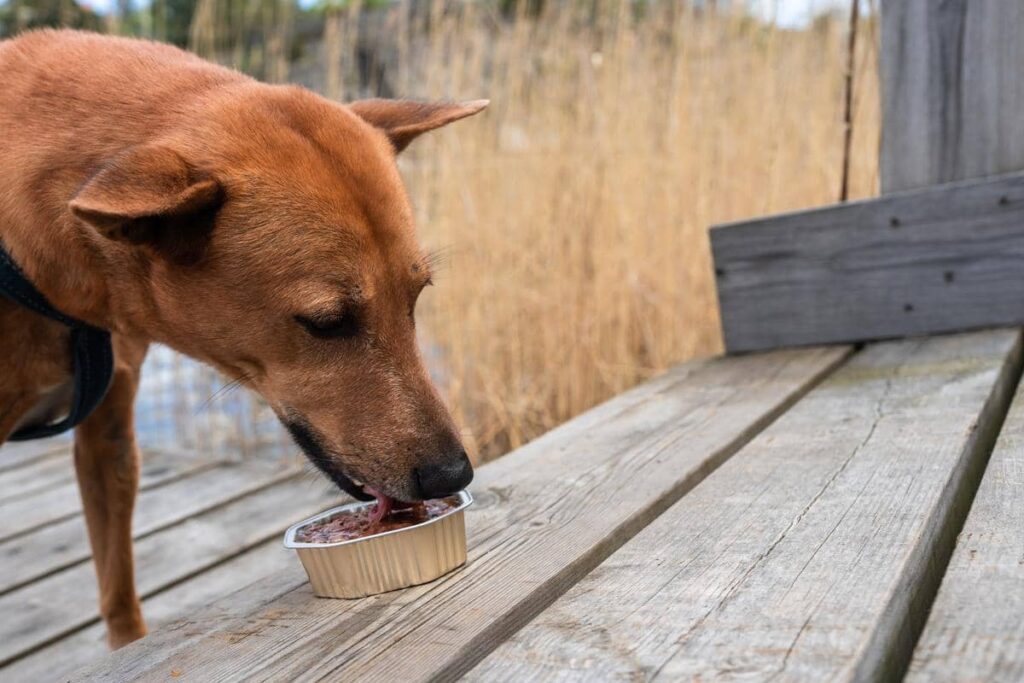
With pita bread, tahini sauce, and a part of a salad, falafel is a famous vegetarian dish made from chickpeas or fava beans, spices, herbs, garlic, and onions. This article will examine whether Can Dogs Eat Falafel Balls balls, outline any hazards, and offer different options for treating your canine friend.
Can Dogs Eat Falafel Balls? Understanding a Dog’s Dietary Needs
Falafel Nutritional Facts
| Nutrient | Amount per 100g (Approximate) |
|---|---|
| Calories | 333 |
| Protein | 13g |
| Carbohydrates | 27g |
| Dietary Fiber | 6g |
| Fat | 23g |
| Saturated Fat | 3g |
| Monounsaturated Fat | 13g |
| Polyunsaturated Fat | 6g |
| Sodium | 592mg |
| Potassium | 333mg |
| Iron | 2.5mg |
| Calcium | 48mg |
| Magnesium | 47mg |
| Phosphorus | 180mg |
| Zinc | 1.3mg |
Before knowing the safety of feeding dogs falafel, it is crucial to understand the dietary needs of our canine companions. As primarily carnivorous animals, dogs require little amounts of high-quality animal protein in their diets to thrive.
While dogs can tolerate small portions of select human foods, it is of utmost importance to ensure that any additions to their diet are free from potential risks, packed with vital nutrients, and do not pose harm to their health.
Safeguarding the well-being of our beloved pets entails making informed decisions and responsibly choosing nourishing options that align with their specific nutritional requirements.
Is Falafel safe for dogs?
Can Dogs Eat Falafel Balls without any danger? While falafel may be a nutritious and scrumptious choice for human beings, it is not an excellent food preference for dogs.
The principle purpose is that falafel is typically deep-fried, which makes it excessive in fat and might cause digestive troubles in dogs. Additionally, the seasonings and spices used in falafel recipes might not be appropriate for canine consumption.
Food and Dietary Requirements
- Banana: Dogs can enjoy the natural sweetness and health benefits of bananas in moderation.
- Asparagus: A nutritious veggie that can be a crunchy and tasty treat for your furry friend.
- Strawberry: Rich in vitamins, strawberries make a delightful occasional snack for dogs.
- Orange Chicken: Plain cooked chicken without spices or sauces can be a safe protein source for dogs.
- Almond Butter: Avoid almonds, but dogs can indulge in unsalted and unsweetened almond butter as an occasional treat.
- Quesadilla: Plain tortilla with a small amount of cheese can be a simple treat for dogs.
- Pita Bread: A small piece of plain pita bread can be given as an occasional snack.
- Ricotta Cheese: Dogs may enjoy a little ricotta cheese as an occasional treat, but avoid excessive amounts.
- Provolone Cheese: Offer a tiny piece of provolone cheese as a special reward for your furry companion.
- Banana Pudding: Plain banana pudding without additives or artificial sweeteners can be an occasional treat.
- Watermelon: A refreshing and hydrating fruit that dogs can enjoy in small, seedless portions.
- Coffee Chew Wood: Coffee and any type of wood should be kept away from dogs, as they are harmful.
- Oatmeal Cream Pie: Avoid sugary snacks like oatmeal cream pies, as they are not suitable for dogs.
- Teriyaki Sauce: Skip the teriyaki sauce, as the high sodium content is unhealthy for dogs.
- Mushroom Cream Soup: Keep creamy soups, especially those with mushrooms, away from your furry friend.
Vitamins and Nutritional Pros and Cons
- Banana:
- Vitamin B6:
- Pros: Supports metabolism, immune system, and red blood cell production.
- Cons: Overconsumption may cause gastrointestinal upset due to high fiber content.
- Vitamin C:
- Pros: Acts as an antioxidant, boosts the immune system, and promotes healthy skin.
- Cons: Dogs produce their own vitamin C, so supplementation is usually unnecessary.
- Vitamin B6:
- Asparagus:
- Vitamin A:
- Pros: Essential for vision, immune function, and cell growth.
- Cons: High-fiber content may lead to stomach upset if given in large quantities.
- Vitamin C:
- Pros: Supports the immune system and helps absorb iron.
- Cons: Overfeeding may lead to gas or mild digestive issues.
- Vitamin A:
- Strawberry:
- Vitamin C:
- Pros: Provides a boost to the immune system and has antioxidant properties.
- Cons: Should be given in moderation due to natural sugars.
- Vitamin C:
- Orange Chicken:
- Vitamin B6:
- Pros: Supports metabolism and brain health.
- Cons: Avoid giving chicken with spices or sauces, which can be harmful.
- Vitamin B6:
- Almond Butter:
- Vitamin E:
- Pros: Protects cells from damage and promotes healthy skin and coat.
- Cons: Almonds themselves can be a choking hazard, so avoid direct consumption.
- Vitamin E:
- Quesadilla:
- Vitamin B6:
- Pros: Supports energy metabolism and nervous system function.
- Cons: High-fat content in cheese may lead to weight gain if given excessively.
- Vitamin B6:
- Pita Bread:
- Various B Vitamins:
- Pros: Essential for energy metabolism and nerve function.
- Cons: Pita bread can be high in carbohydrates, so feed in moderation.
- Various B Vitamins:
- Ricotta Cheese:
- Vitamin A:
- Pros: Important for vision and immune system support.
- Cons: High-fat content, so feed in small amounts to avoid weight gain.
- Vitamin B12:
- Pros: Supports nerve function and red blood cell production.
- Cons: Excessive consumption may lead to gastrointestinal upset.
- Vitamin D:
- Pros: Aids calcium absorption and supports bone health.
- Cons: Over-supplementation can lead to toxicity, as dogs can’t regulate vitamin D as effectively as humans.
- Vitamin K:
- Pros: Crucial for blood clotting and bone health.
- Cons: Excessive vitamin K can interfere with blood-thinning medications.
- Calcium:
- Pros: Essential for bone and teeth health, muscle function, and nerve transmission.
- Cons: Over-supplementation can lead to skeletal problems and urinary issues.
- Vitamin A:
- Provolone Cheese:
- Vitamin A, Vitamin B12, Vitamin K, Calcium:
- Pros: Similar to ricotta cheese, these vitamins and minerals offer various health benefits.
- Cons: High-fat and sodium content, so feed in moderation to avoid health issues.
- Vitamin A, Vitamin B12, Vitamin K, Calcium:
- Banana Pudding:
- Vitamin B6:
- Pros: Supports metabolism and various body functions.
- Cons: Pudding may contain added sugars and artificial ingredients, which are not suitable for dogs.
- Vitamin B6:
- Watermelon:
- Vitamin A, Vitamin B6, Vitamin C:
- Pros: Provide essential vitamins and hydration.
- Cons: Remove seeds and feed seedless watermelon in small portions to prevent choking.
- Vitamin A, Vitamin B6, Vitamin C:
Knowledge the components
To recognize the reason Can dog eat falafel, allows us to take a better look at its most important ingredients.
Can dogs eat chick peas?
can dogs eat chick peas? The number one factor in falafel, are generally safe for dogs moderately. They may be a great source of protein, fiber, and crucial nutrients.
However, it is important to word that dogs have special nutritional necessities than humans, and their digestive structures might not tolerate positive ingredients as well.
Spice Mixes and Herbal Ingredients in Falafel:
A Middle Eastern treat, falafel induces our taste buds with its flavorful combination of herbs and spice blends. But Can Dogs Eat Falafel Balls flavors when it comes to our dog friends?
It’s important to research the potential effects of these spice blends and herbal components on canine consumption.
Garlic and Onion:
In traditional falafel recipes, garlic and onion are often added to give the meal flavor and pungency. Unfortunately, dogs don’t like either garlic or onion.
The substances in these savory ingredients can damage a dog’s red blood cells and cause a variety of health issues. Thus, it’s vital to avoid giving dogs falafel or any other foods that contain garlic and onion.
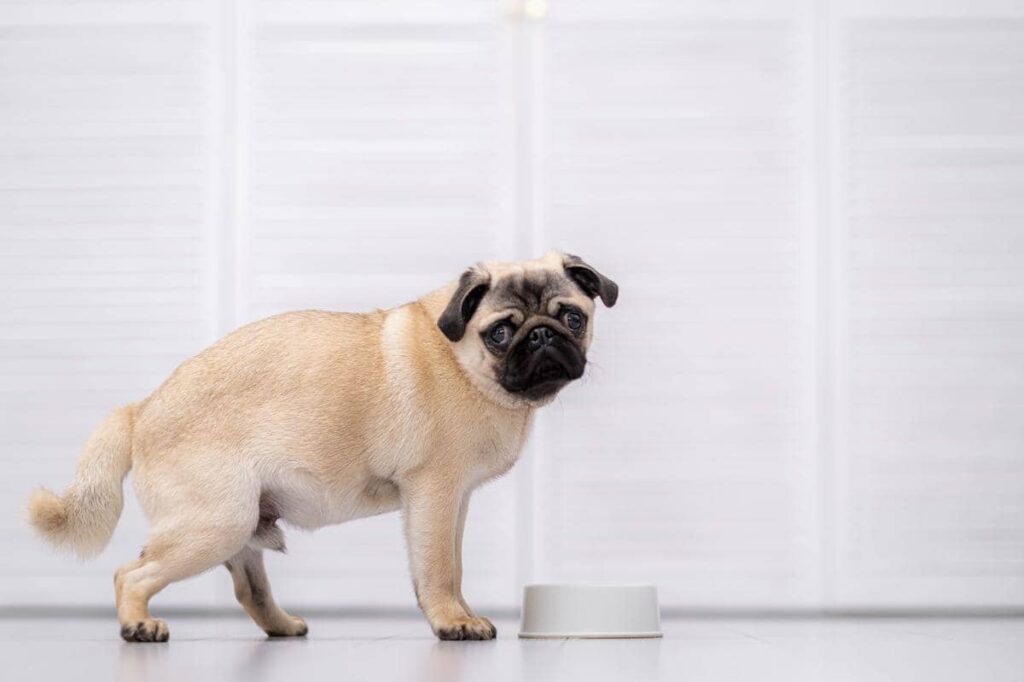
Cumin and Coriander:
Cumin and coriander, common spices found in falafel, offer a distinct taste profile. While generally safe for dogs in small quantities, individual sensitivities can vary.
It’s important to closely observe dogs for any signs of digestive upset or allergic reactions after consuming falafel or dishes featuring these spices. Consulting a veterinarian is recommended if any adverse symptoms arise.
Parsley and Cilantro:
The flavors of parsley and cilantro, which are usually used for falafel, give the food a fresh, vibrant taste. These plants are typically believed to be safe for dogs.
However, dogs may exhibit individual sensitivities or allergies, warranting careful observation post-falafel consumption. Should any unusual symptoms manifest, it’s advisable to consult with a veterinarian.
Sesame Seeds:
Sesame seeds, often used in falafel coatings or as a flavorful garnish, offer a delightful textural element. While small amounts of sesame seeds are typically harmless to dogs, caution should be exercised.
Large quantities or difficulties in chewing can pose a choking hazard. It’s imperative to monitor dogs closely to ensure they do not consume excessive amounts of sesame seeds.
Other Spices and Herbs:
Falafel recipes may include a variety of other spices and herbs, each adding its unique touch. While some spices and herbs are generally safe for dogs, individual sensitivities and allergies must be taken into account. When introducing new ingredients, a gradual and measured approach is recommended to assess any potential adverse reactions.
All in all, while the spice mixes and herbal ingredients in falafel tantalize our taste buds, caution should be exercised when considering canine consumption. To ensure the well-being of our dogs, it’s best to avoid feeding them falafel due to the potential risks associated with dogs.
Numerous safe alternatives cater specifically to dogs’ dietary needs, providing a flavorful and healthy experience. Prioritizing our dogs’ health and happiness means offering them foods that are not only delectable but also safe for their consumption.
Also Read: Big Rope French Bulldog – Ultimate Guide
Cooking Oil
Falafel is deep-fried in cooking oil, which provides for its calorie and fat content. Excessive-fat ingredients can cause digestive disappointment, pancreatitis, or even obesity in puppies. It is great to avoid feeding oily and greasy ingredients in your canine accomplice.
Fava Beans
Broad beans, often referred to as fava beans, sometimes serve in falafel in place of or in combination with chickpeas. Fava beans are unsafe for your dog to eat in any case. This is because fava beans contain phytohemagglutinin or PHA.
Dogs should avoid PHA because it is harmful to them. If your dog has consumed too much PHA, he may have nausea, vomiting, and diarrhea.
How Much Can Dogs Eat Falafel Balls?

Store-bought falafel is completely restricted to dogs. Thus, the response to whether or not can dogs eat falafel is a reverberating “no.” Presently, you may be enticed to have a go at planning falafel at home in the event that you feel like the test. The issue is that canines shouldn’t consume a lot of vegetables, and garbanzo beans are an indispensable part of falafel.
To maintain a healthy diet for your dog, it is therefore recommended to completely avoid falafel.
The good news is that your dog can live a healthy life without falafel. They can do perfectly fine on the diet recommended by your veterinarian without any need for constant changes.
If you do decide to venture into the world of homemade meals for your furry companion, just make sure to consult your vet to ensure they’re getting all the necessary nutrients for a healthy and happy life.
Last-minute advice involves:
- Mash or mix the chickpeas to make them simple for a dog to ingest.
- Tahini can be used to flavor the chickpeas by sprinkling them on top.
- Dogs shouldn’t be given raw or undercooked chickpeas because they are more dangerous than healthy.
How Do You Treat a Dog Who Eats Falafel?
If you’re wondering, “Can Dogs Eat Falafel Balls balls?” furthermore, your canine has inadvertently devoured falafel or is encountering stomach-related issues subsequent to eating any new food, looking for veterinary advice is essential.
It means quite a bit to look for guidance from a certified veterinarian to evaluate your canine’s well-being and decide the best intend to take for them.
The veterinary expert will actually want to offer your canine the assistance and consideration of the individual in question’s requirements to stay sound. Always keep in mind that it is always preferable to be safe and seek medical advice about whether can dogs eat falafel balls.
Understanding the Potential Effects of Dogs and Falafel
Popular Middle Eastern food called falafel is a delicious delight that many people love. But Can Dogs Eat Falafel Balls? It’s essential to think about the potential risks of serving falafel to our canine friends.
There are a few frequent impacts to be cautious of, though the impact may vary depending on variables like the amount taken, the size of the dog, and individual sensitivities.
In this post, we’ll delve into the peculiarities of serving falafel to dogs and consider any possible health implications.
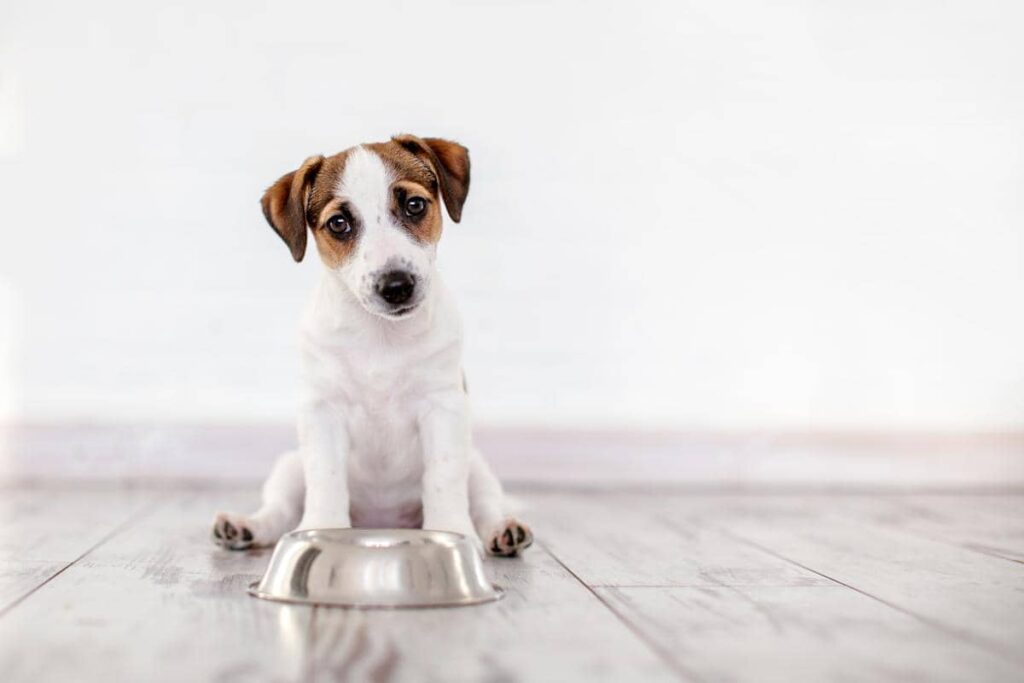
Gas or Gut Problems:
Feeding falafel to dogs can frequently result in constipation. Canines might experience difficulty processing falafel due to its high-fat substance, generally from profound broiling. This could cause distress in the mid-region, queasiness, heaving, and loose bowels.
Gut Guard – For Dogs with Irritated Guts
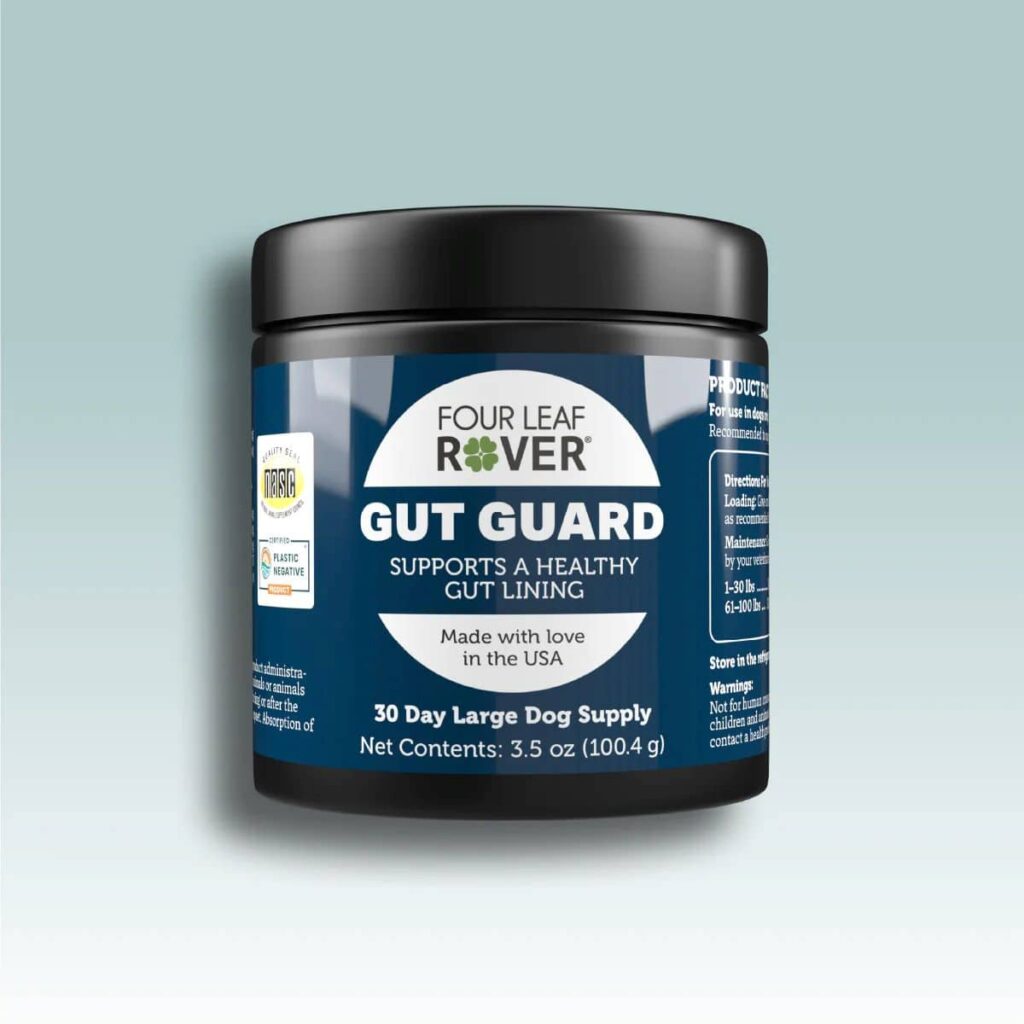
- Gut Guard: A veterinary formulated blend of probiotics and herbs designed to support a normal inflammatory response in the gut and immune system of dogs.
- Supports Gut Health: Many foods, toxins, chemicals, and drugs have the potential to damage the gut lining, making it more permeable, leading to digestive issues.
- Prevents Toxin Leakage: By promoting a healthy gut lining, Gut Guard helps prevent toxins from escaping the gut, reducing the risk of health and immune issues in dogs.
- Combination of Probiotics and Herbs: The unique blend of probiotics and herbs in Gut Guard work synergistically to support gut health and immune function.
- Veterinary Formulated: Developed by veterinary experts to ensure the best possible support for canine digestive and immune systems.
Dogs’ digestive processes differ from those of people, therefore they may not love some meals that we do. It’s important to keep in mind that their bodies could have trouble processing foods high in fat, like falafel.
Allergic Reactions:
Dogs can experience allergic reactions to some foods, including falafel, just like humans can. Sensitive dogs may experience allergic responses to the falafel’s many herbs, spices, and components. Itching, skin issues, swelling, hives, and breathing problems are typical signs of food allergies in dogs.
It’s necessary to seek veterinarian care right away if your dog exhibits any symptoms of an allergic reaction after eating falafel. Also, consult with the caretaker about whether the can dog eat falafel.
Toxicity of garlic and onion: The Hidden Danger
Did you know that some common ingredients found in our everyday cooking can be toxic to dogs? Garlic and onion, the flavor powerhouses we often rely on to enhance our meals, pose a hidden danger to our furry friends.
The substances found in this delicious bulb have the potential to be risky to dogs, therefore it’s crucial that dog owners are aware of the possible dangers of consuming them.
The onion family, which also contains plants like leeks and shallots, includes both garlic and onions as members. These plants contain compounds called thiosulphates, which can harm a dog’s red blood cells through oxidative damage.
When dogs ingest garlic or onion, these compounds attack the red blood cells, leading to a condition called Heinz body anemia. This condition impairs the cells’ ability to carry oxygen throughout the body. The symptoms of garlic and onion toxicity in dogs may not be immediately noticeable, as they can take time to develop.
It’s critical to keep in mind that the degree of toxicity can change based on elements including the quantity consumed, the dog’s size, and individual susceptibility.
Akitas and Shiba Inus are two canine breeds that may be susceptible to the harmful effects of garlic and onion. Even small amounts, such as those present in certain seasonings, powdered forms, or cooked dishes, can potentially harm dogs.
If you suspect that your dog has consumed garlic, onion, or any related products, don’t hesitate to seek immediate veterinary attention. The veterinarian may induce vomiting or administer medications to mitigate the effects of toxicity.
Be sure to provide accurate information about the quantity and type of exposure to assist with proper diagnosis and treatment.
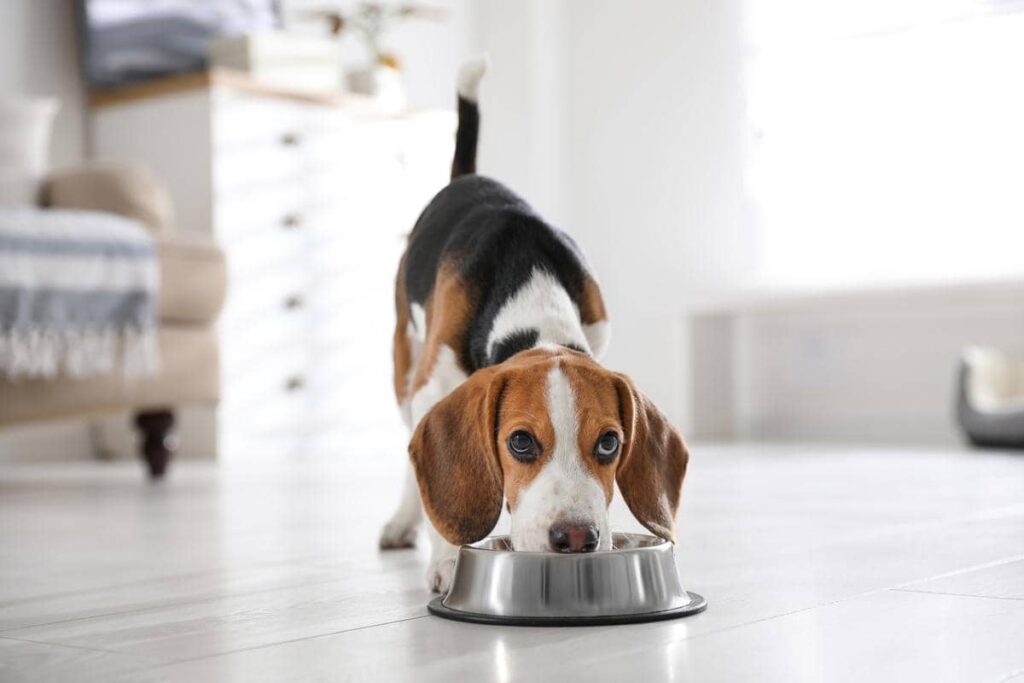
Prevention is key in safeguarding our furry friends from garlic and onion toxicity. Be mindful of the ingredients used in your cooking, and store all forms of garlic and onion products securely, out of your dog’s reach. Remember that even foods flavored with garlic or onion powder can pose a risk.
Upset Stomach:
The combination of spices, flavors, and cooking oil in falafels might be a lot for a canine’s stomach-related framework to process.
As a direct consequence of this, you might also experience additional digestive symptoms like more gas. Dogs may react differently to eating falafel depending on their sensitivity. Watch your dog closely for any indications of intestinal issues.
Conclusion
Falafel might be a charming and solid decision for individuals, yet it isn’t suggested for dogs. Can Dogs Eat Falafel Balls? Due to the potential dangers associated with its extra substances, it’s first-rate to keep away from feeding falafel to puppies.
Despite the fact that chickpeas themselves can offer fitness blessings, it’s essential to serve them without the seasonings, spices, and cooking oil utilized in falafel recipes.
Rather, select safe options like simply cooked chickpeas, canine-pleasant vegetables or self-made dog treats. Take into account prioritizing your dog’s health and seek advice from your veterinarian if you have any concerns.
Also Read: Black Mouth Cur Pitbull Mix – Ultimate Guide

Frequently Asked Question
Q: Can Dogs Eat Falafel balls?
A: No, chickpeas frequently contain both lemon juice and garlic, both of which are harmful. Lemon juice’s acidity can result in nausea or diarrhea, while garlic can cause severe anemia. Even if they seem fine, call your veterinarian if chickpeas have been ingested.
Q: Do dogs get gas from eating chickpeas?
A: Chickpeas include some fiber that is difficult to digest. The bacteria also produce gas as a byproduct, thus the more chickpeas consumed, the more gas will be produced. Contact your veterinarian if you experience any signs of gas pain as this condition can be a sign of various illnesses and is not always related to nutrition.
Q: Can you feed chickpea rice to dogs?
A: The simple response to the question of whether chickpeas are safe for dogs is yes.
Q: Can dogs consume onions?
A: Dogs shouldn’t eat onions, N-propyl disulphide, a substance found in these veggies, is extremely harmful to dogs. Anaemia may result from this substance’s ability to tear down red blood cells and ultimately cause their demise. In severe circumstances, canine onion poisoning can be lethal.
